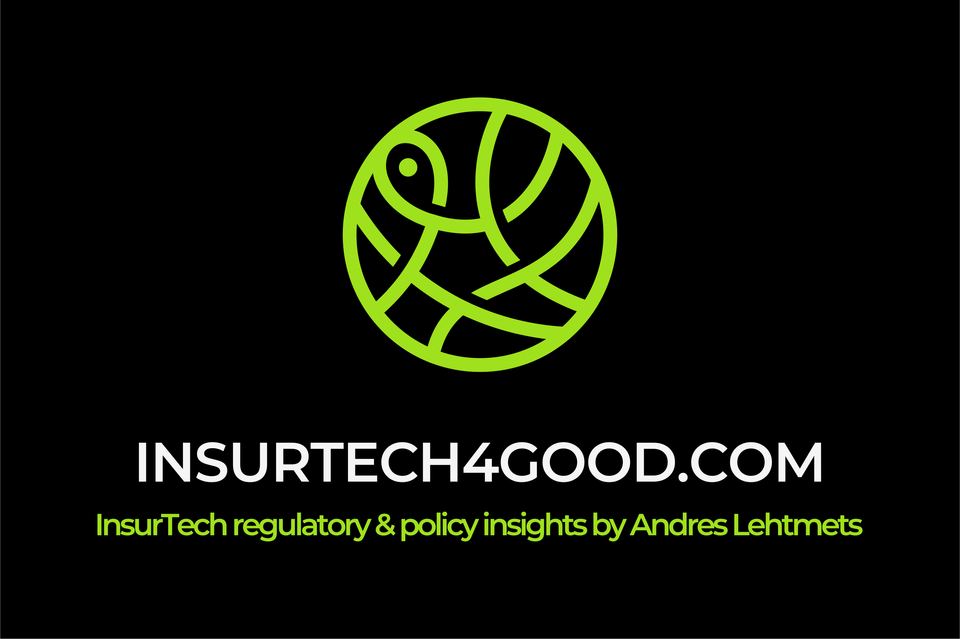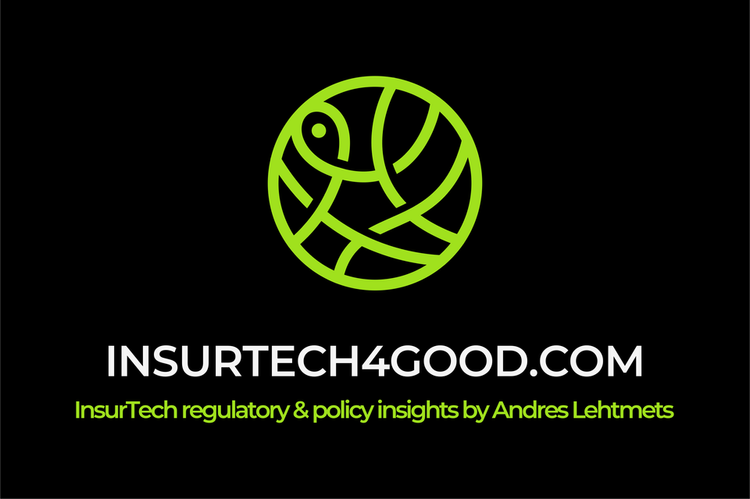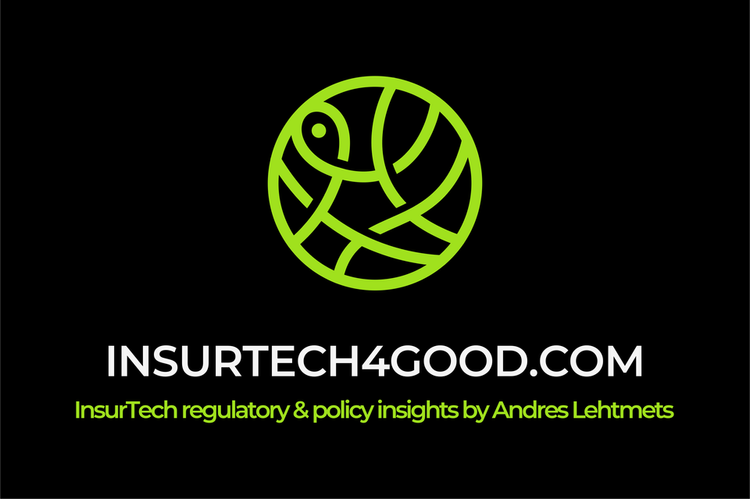InsurTech4Good Weekly Newsletter – #11, 2025

My newsletter for this week is here!
First, I'm happy to bring you another interview from the InsurTech 2050 series.
I also cover an update on Financial Data Access (FIDA), World Consumer Protection Day and its connection to insurance and sustainability, and, interestingly, the fact that the European Parliament will start work on its own initiative report on AI in finance.
Hope you find it useful!
Andres
InsurTech 2050 Interview of the Week | Rauno Sigur, DriveX Technologies

I’m excited to bring you my next interview with Rauno and the story of DriveX Technologies. DriveX helps insurers assess damages objectively using AI, streamlining accident recovery by eliminating manual work and reducing fraud. With their remote inspection software, insurers can increase repairs while minimizing unnecessary replacements.
The DriveX story has been inspiring, filled with the ups and downs typical of the startup world. We discussed finding product-market fit, the agile development process, building a deep tech company, the grant application process, AI strategy, sustainability goals, and much more.
Oh, and if you’d like to learn more about reducing claim sizes by 15% and cutting the average carbon footprint by 21%, I’d be happy to make an introduction.
Read the full interview here.
EU Financial Data Access Regulation (FiDA) update
The EU open finance/open insurance proposal, FiDA, is back on the table, with negotiations between the European Parliament and the European Council (or trilogues, as we call them in the Brussels bubble) expected to start soon.
FiDA establishes obligations for customer data holders (e.g., most financial institutions regulated at the EU level) to provide data to users (e.g., other financial institutions or FinTech firms) in a secure, machine-readable format.
For customers, it ensures full control over who accesses their data and for what purpose, enhancing trust in data sharing.
This can unlock new opportunities, such as:
- New, cheaper, and improved data-driven financial and information products tailored to consumer needs.
- Greater efficiency in product design, underwriting, contract execution, claims management, and risk mitigation.
- Wider data sets to responsibly underwrite risk and price policies or loans.
- Enhanced financial and investment advice.
- Improved SME financing opportunities.
- Personalized tools for consumers.
So, what does the start of the trilogues mean? It means FiDA is moving forward—and rather quickly. However, it can still be blocked or significantly altered at any stage, which is why it’s crucial to make your voice heard, whether you support the initiative or have concerns. Now is the time to engage.
Another advice I would give here is that don’t view this solely as a compliance and cost exercise—start exploring already now how FiDA can be leveraged to enhance your business model!
If you’re looking for an overview of FiDA, insights into the current negotiations, an understanding of potential use cases, or public affairs support, feel free to reach out. I’d be happy to find a tailored solution for you.
World Consumer Rights Day and insurance
Every day, billions of consumers make choices that directly shape our planet’s future—yet sustainable options often remain out of reach.
Today, World Consumer Rights Day is being celebrated with the theme "A Just Transition to Sustainable Lifestyles."
This theme highlights the urgent need to make sustainable and healthy lifestyle choices available, accessible, and affordable for all consumers—while ensuring that these transitions uphold people's fundamental rights and needs.
It calls for a just transition to sustainable lifestyles that:
- Upholds the legitimate needs of consumers, including access to essentials such as food and energy, as well as the protection of health and safety.
- Makes sustainable and healthy choices more available, accessible, and affordable for all, rather than placing the burden of responsibility solely on individual consumers.
- Ensures consumer voices are heard at all levels of governance and within businesses, with a focus on including and protecting vulnerable and low-income consumers.
- Recognizes that pathways to a sustainable lifestyle vary across contexts; what works in one setting may not be feasible or relevant in another, as local priorities and challenges shape unique approaches.
This year's campaign will focus on sustainable lifestyles across core sectors, including finance and insurance.
Sustainability in insurance: what do consumers think? The recent Eurobarometer survey on consumer trends in insurance and pension services asked whether consumers had heard about “sustainable” (or “green”) insurance or pension products. The results are in this graph.

Source: Eurobarometer 2024: consumer trends in insurance and pension services
Read more here.
European Parliament work on AI in finance
The European Parliament is set to commence work on two own-initiative reports examining the impact of artificial intelligence on the financial sector and copyright, following their approval by political group chairs last week.
Read more here.
Thank you!
Thanks for reading! If you need help with regulatory strategy, InsurTech research, thought leadership, or policy advisory, feel free to reach out on LinkedIn or via email.





Member discussion